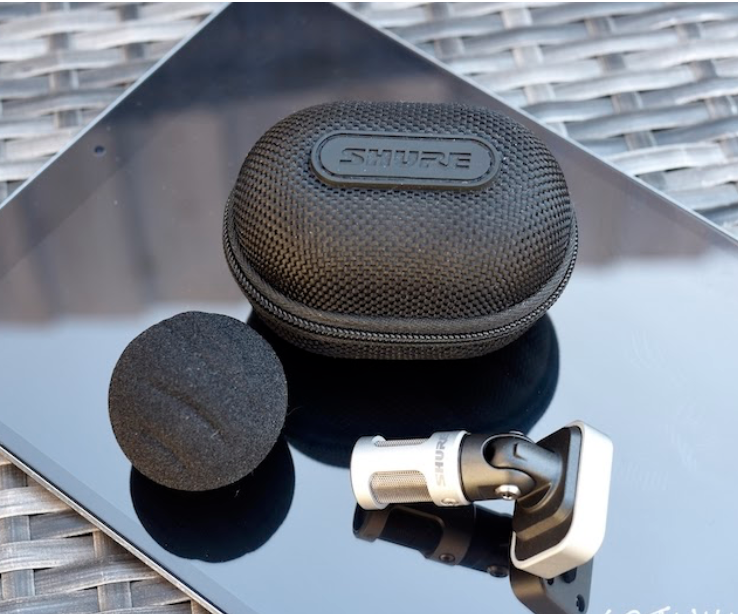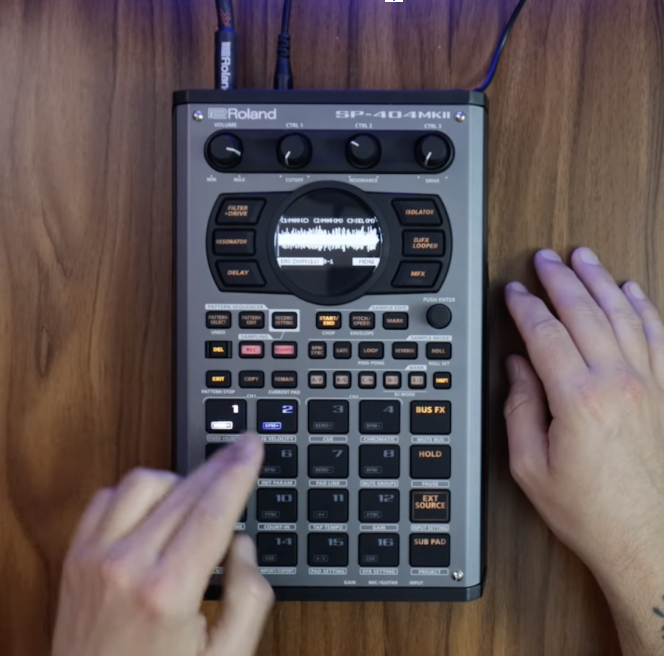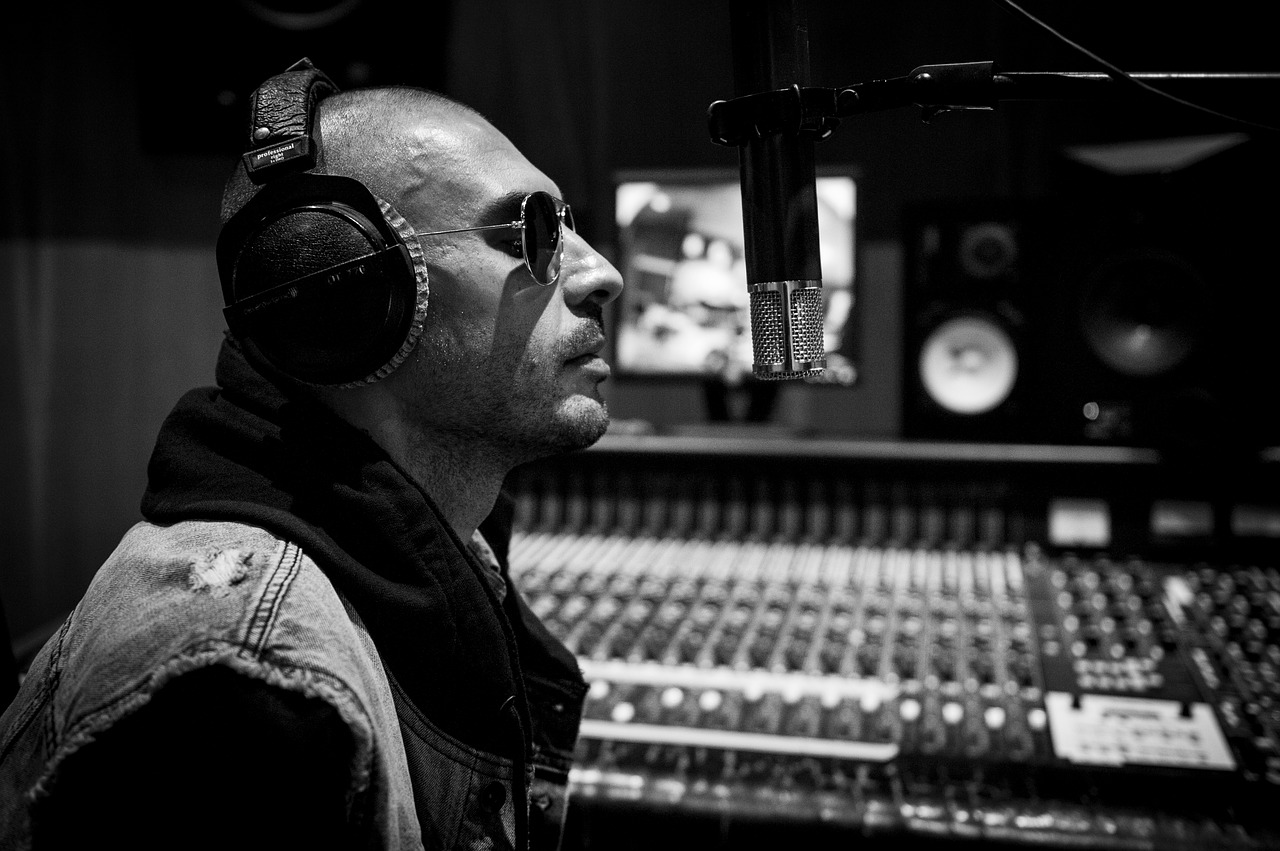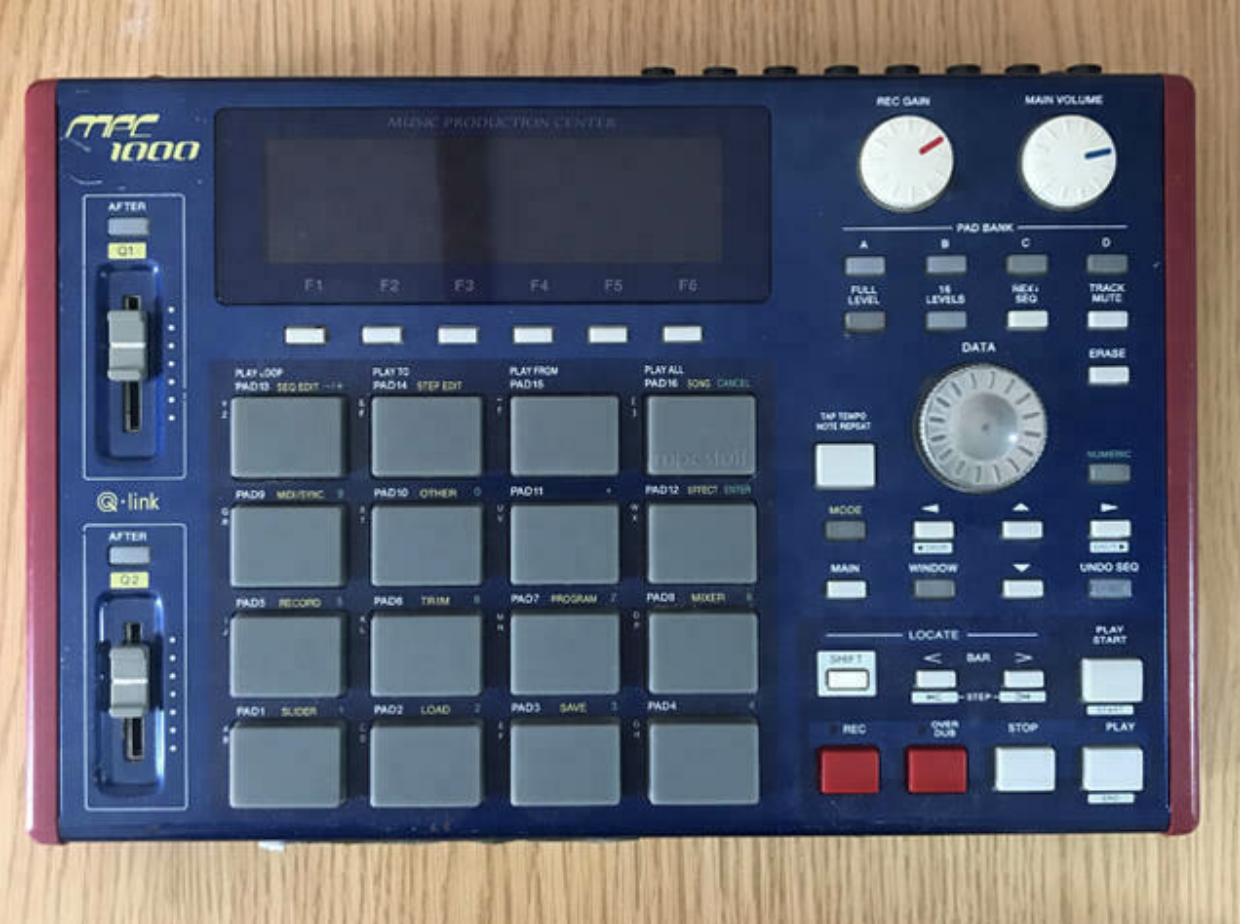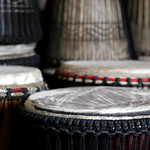
The Different Types of Drums: From Traditional to Modern
May 26, 2022
5款推荐的网红麦克风,Youtube, TikTok, Podcast首选!Youtube Mic 選他們就對了!
August 5, 2022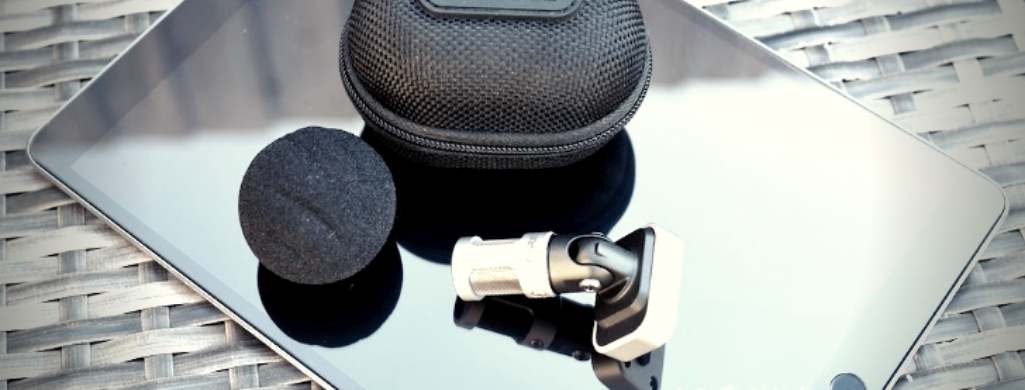
With the move away from Apple’s proprietary lighting port towards USB-C connectivity; iPad compatible microphones are more capable of recording high-quality audio than ever.
With portability becoming more essential for musicians and creatives the iPad has seen a steady rise in popularity over the past few years. This on top of their new connectivity means there are so many new options on the market so to help you pick the right gear for you let’s run through the best microphones for iPad.
Our Recommendation of Best Microphones for iPad
- Audio Technica ATR2500X (Best USB-C Microphone)
- Apogee Hype Mic (Best Compatability Microphone)
- Rode VideoMic Me-L (Best Video Microphone)
- Mackie Element Series (Best Podcast Microphone)
- Zoom iQ7 (Best Stereo Recording Microphone)
- Comica BoomX-D (Best Wireless Microphone)
- Shure MV88 (Best Portable Microphone)
1. Audio Technica ATR2500X USB-C Microphone
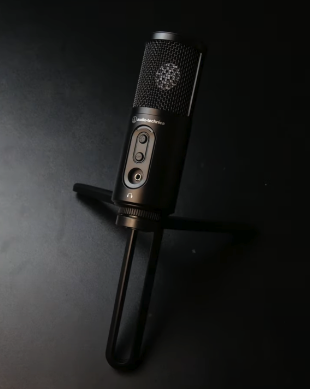
Pros:
- USB-C Connection
- Full-sized microphone
- Includes Tripod
Cons:
- Not very portable
- Not compatible with older iPads
This straightforward condenser microphone will hook up directly to any of the latest iPad models right into your USB-C port. It’s a full-sized mic that comes with a tripod stand but remains portable for recording vocals or podcasts on the go.
While you might initially think iPad compatible microphones have to be specifically designed to suit the iOS ecosystem this microphone was originally designed with Mac and Windows users in mind. The inclusion of USB-C on the newer iPads has opened up a whole new area of microphone compatibility.
2. Apogee Hype Mic
Pros:
- Multiple ways to connect
- Analog compression
- Comes with travel case and tripod
Cons:
- More expensive than other options
- Settings reset between uses
This is a great mic if multiple device compatibility is what you’re looking for. In the box, you’ll find cables that allow you to connect this mic via USB-C, USB-A, and lightning cable. So if you’ve got an older iPad it will work and will future proof you should you choose to upgrade in the future.
The mic comes equipped with 3 levels of analog compression to help record superb quality in a variety of environments. This is a very important feature for a microphone intended to be used with a portable device like an iPad.
It also comes with an included travel case so that you can easily pack it away for use away from home.
3. Rode VideoMic Me-L Directional Mic
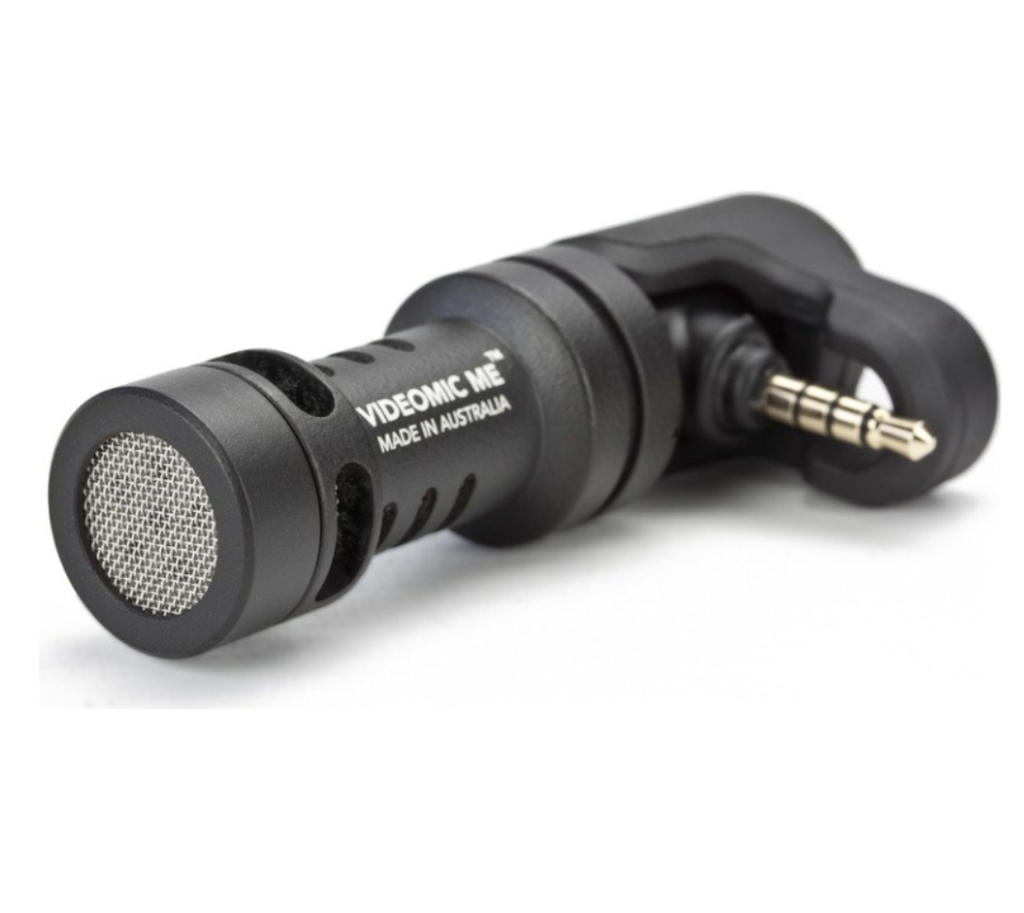
Pros:
- Direction recording
- Surround sound reduction
Cons:
- Uses lighting connection
- Only works as a directional mic
While the iPad does have an inbuilt microphone for recording video it isn’t going to impress anyone if cinematic appeal is what you’re after.
This directional mic solution is a perfect companion for recording short films and videos on your iPad. It focuses on what sounds are in front of it and reduces surrounding noises to give your videos a more professional audio quality.
Unfortunately, it uses a TRRS input so you’ll need an adapter to USB-C if you’ve got a later model iPad.
4. Mackie Element Series USB Condenser Microphone
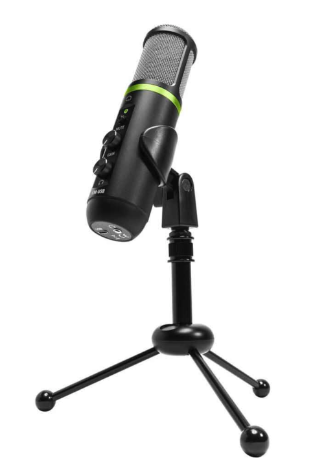
Pros:
- Headphone input for monitoring
- Includes tripod
Cons:
- More suited to spoken word than music recording
- Requires USB-C to USB-A cable to charge
This affordable USB-C condenser microphone has great audio quality and versatility. It comes equipped with built-in gain control as well as a headphone output for real-time monitoring of what you’re recording.
One of the downsides of the later iPad models is the removal of the headphone jack. By including a headphone jack on the mic this problem is resolved. You can also control the volume of the headphone right on the mic itself.
This microphone also includes a tripod stand in the box which is perfect for long audio recording sessions and podcasting.
5. Zoom iQ7 Stereo Mid-Side Microphone
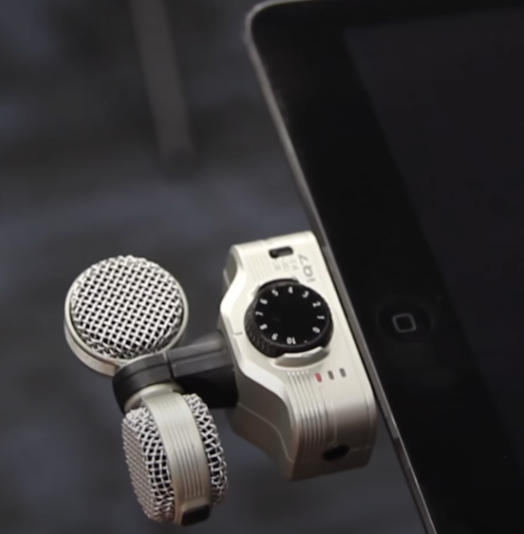
Pros:
- Multiple stereo record modes
- Tiny form factor
Cons:
- Proprietary app to record
- Uses lighting connection to plug in
This clip-on mic utilizes its stereo capabilities to offer 3 different recording modes; 90, 120, and multi-side. It’s got a super convenient form factor that clips onto your iPad without needing extra accessories.
The downsides of this microphone are that it uses lighting connection and requires the use of a proprietary app to record.
Despite this, it’s a great solution if you’re looking for a straightforward way to do some casual audio recording. However, If you need a more professional solution that is capable with 3rd party apps there are better choices.
6. Comica BoomX-D
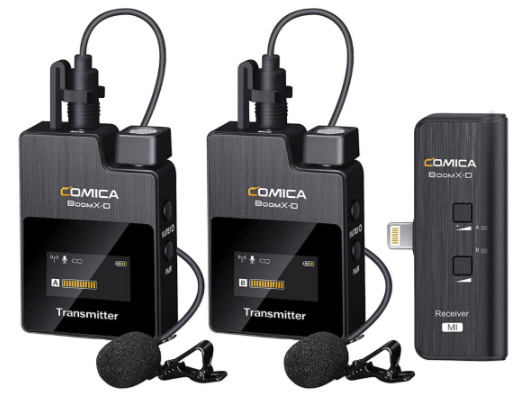
Pros:
- Wireless recording
- Comes with two transmitters for multiple sources
- LCD screen
Cons:
- Lapel mics not ideal for general recording
- Different parts need charging independently
For a wireless microphone solution, we recommend the Comic BoomX. Unlike the condenser and direction mics on this list, this uses lapel microphones that can be clipped on.
The package features a receiver as well as two transmitters that communicate wirelessly and charge via USB-C. USB-C charging is a great feature as this means you can use your iPad’s internal battery to charge the transmitters should you find yourself in a pinch while on the go.
The inbuilt LCD screen on the receiver is also a nice touch as you can monitor input gain, connection status as well as charge level. One battery cycle should get you 5 hours of recording time.
7. Shure MV88 Portable iOS Microphone
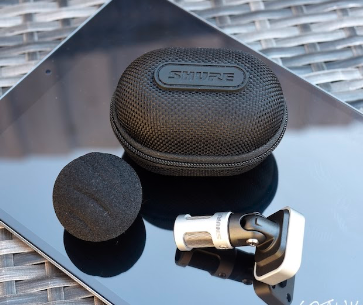
Pros:
- Great app for customizing your sound
- Clips right onto your iPad
- Works across any app that supports 3rd party mic (including native camera app)\
Cons:
- Uses lighting connection
- Unnecessary bevel near connection point
One of the most straightforward microphones on this list is also one of the most dynamic and customizable. It clips straight onto your iPad and can record in either stereo or mono but the included app provides an impressive amount of adjustability for just a small device.
The native Shure app lets you change the EQ of the mic on the fly, as well as mic gain and even wind reduction. The app can also be used to dial in compression settings and add a limiter to your recordings.
Like most of these clip-on microphones, it does still use a lightning connection which is a downside but a simple adapter can amend this issue.
Be sure to subscribe to our newsletter for upcoming offers of our future products! Cheers. 🙂

